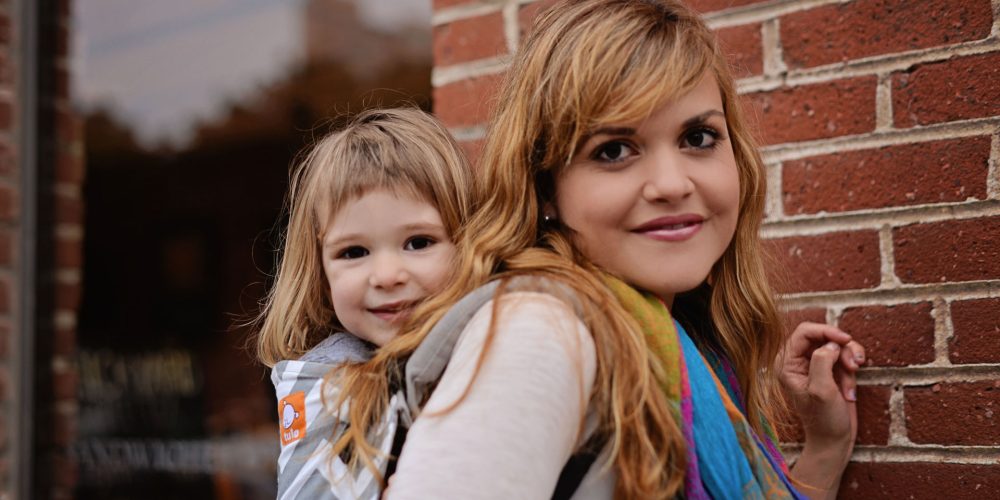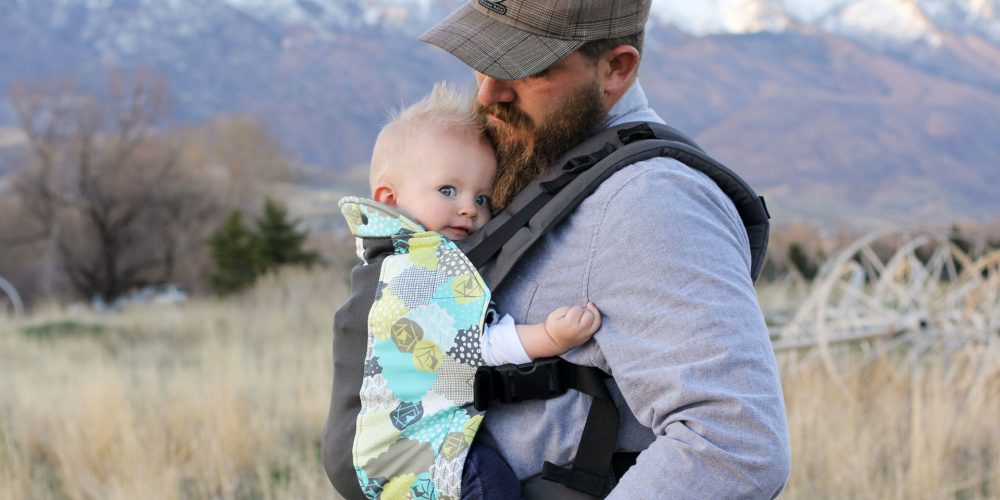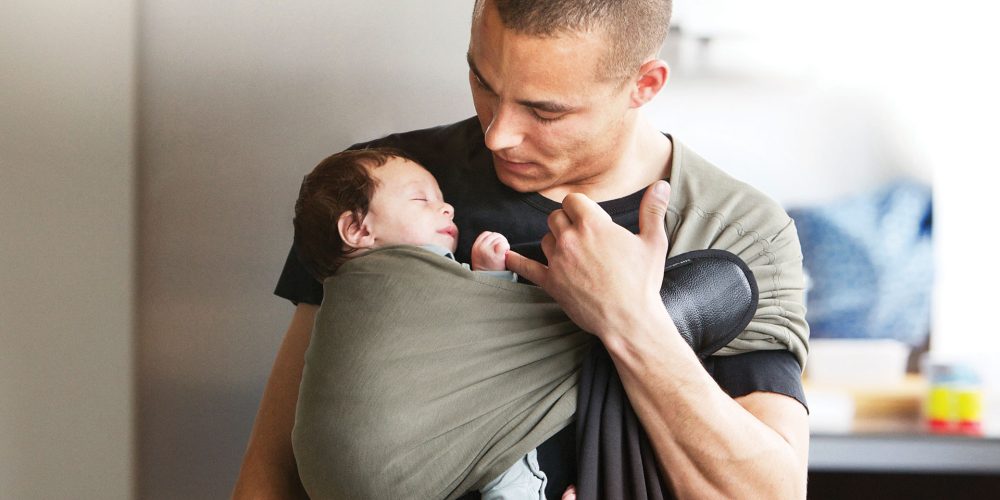Best Baby Carriers for babies from 5 to 18 months old
Best Baby Carriers for babies from 5 to 18 months old
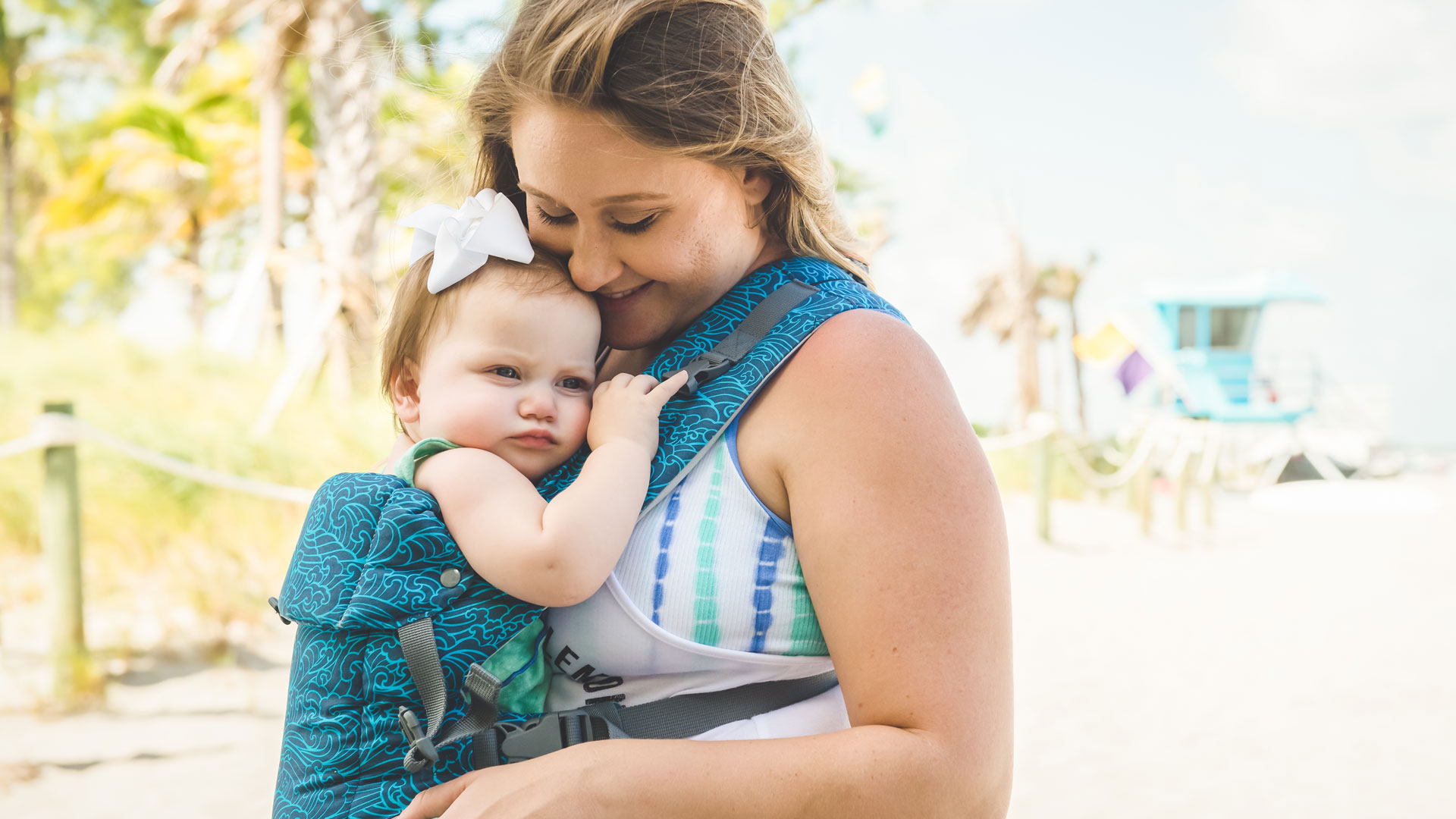
Understanding Baby's Development - 5 months to 18 months
At 5 months, most babies would have achieved good neck control. Most babies at this stage are expected to weigh between 6 to 9kgs. Over the next few months, your baby will be developing balance and gain enough strength to roll over, sit up unassisted by themselves and start crawling. Between 10 to 14 months old, they will also start cruising and walking. Your baby’s weight will continue to increase steadily from 5 months old till they turn around one year. As they start to walk and grow taller, their weight gain is expected to become more gradual. At around one year old, your child should weigh between 8 to 12kgs. At 18 months, most toddlers will weigh between 9.5kg to 14kg (according to WHO standards).
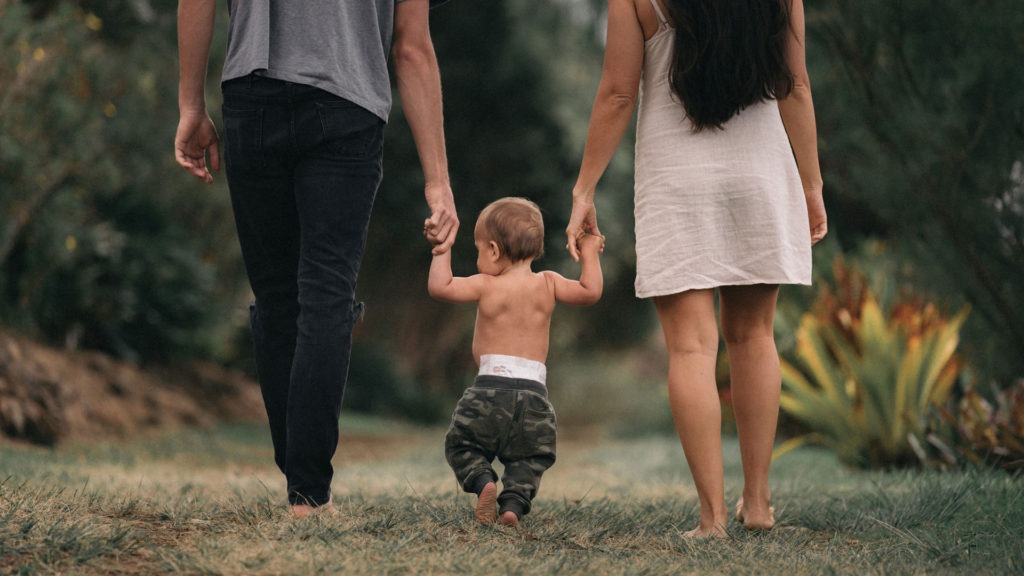
This is the phase of your baby’s life when carrying your baby becomes essential, yet it gets progressively tougher to carry them comfortably with their increasing weight. Babies and toddlers of this age continue to need a lot of sleep. Napping throughout the day is common and important for healthy growth. When they are awake, babies in this age group love to see the world and tend to struggle when they get excited or wish to get down to be part of the action. A good babywearing tool can make carrying your baby a stress-free affair and additionally allows your child to learn from observing you and the world around them.
The most important criteria for a baby carrier at this point is to be able to cater to the needs of the parents to wear their baby’s increasing weight more comfortably, as well as offer a comfortable space for the growing baby. As parents are likely be more mobile and adventurous with babies in this age group, the flexibility and ease of use of the baby carrier for different carrying positions and for different occasions such as hiking, traveling may become key determining factors when selecting a suitable babywearing tool or baby carrier as well.
Selecting A Suitable Baby Carrier for Babies 5 months to 18 months
The most practical everyday babywearing tool or carrier of choice for babies from 5 months to 18 months are the ergonomically structured hybrid soft structured baby carriers, soft-structured baby carriers (SSCs), and semi-hard structured baby carriers, with the hybrids and SSCs being most comfortable. The ease of use of this category of baby carriers also make them the preferred choice especially for carrying toddlers that needs to get in and out of the carriers often.
While baby ring slings are generally excellent for younger babies, they will breach the comfort weight limit for the parent when worn for extended periods (30mins or more) as your baby grows. The baby ring slings can continue to be used for shorter periods of carrying (a hop in to the supermarket or out to grab a meal) or for the purpose to nurse babies but they are generally not recommended for extended periods of carrying. Of course, not all baby ring slings are made equal, and a lot depends on the fabric and their cut as well as shoulder design, but we will discuss this more at length in another post. Here, you can use basic physics to draw reference that a single shouldered sling is less likely to be ergonomically comfortable compared to an ergonomic soft-structured baby carrier with 2 shoulder straps and a hip/ waist belt especially for longer walks or on more challenging terrain e.g. hiking.
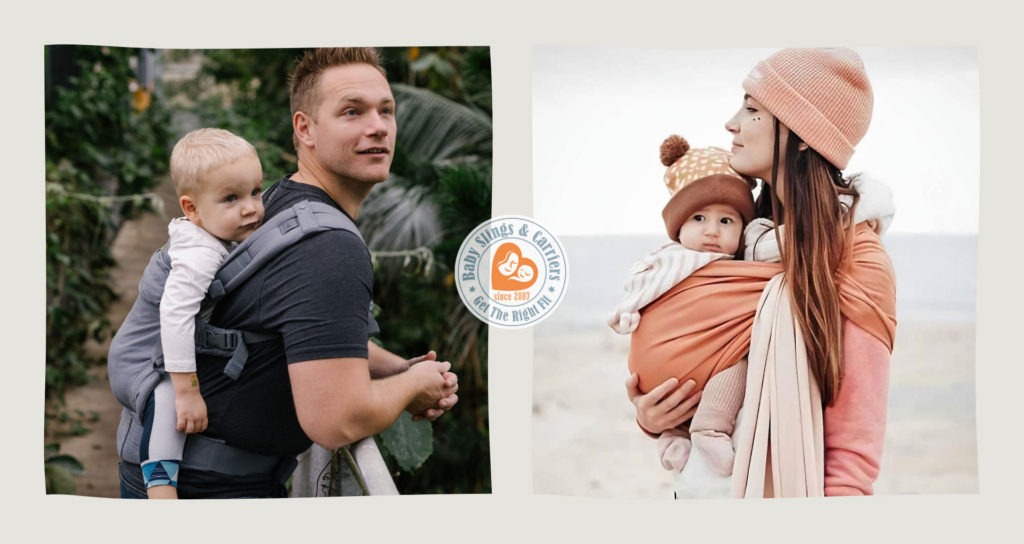
Baby wraps and Meh Dais / Mei Tais have better ergonomics in terms of weight distribution than the baby slings and can still be used comfortably with the increased weight of the child. However, it may get more challenging to use as the child grows taller and wants to get in and out of the carrier often. Most parents at this stage usually will prefer the use of structured carriers for easy on and off as well as better weight distribution. (Do note that good weight distribution can be relative to a properly fitted baby carrier. Read our article on Guide to Choosing a Soft Structured Baby Carrier for a better idea.)
We have put together a comparison table below as to the weight distribution, comfortable weight/ child size limits, as well as their ease of use. These should be the key considerations when choosing a carrier for this age group.
Carrier Comparison Table for 5 to 18 months old Toddlers
| Baby Carrier | Weight Distribution | Comfortable Weight/Child Size Limit | Ease of Use | Additional Remarks |
|---|---|---|---|---|
| Baby Ring Slings | Poor to Fair (dependent on several factors) Weight borne on a single shoulder across the back | 8kg to 12kg, depending on wearer, fabric & design | Easy | Still the best carrier for discreet breastfeeding and short period carrying. |
| Stretch/ Jersey Wraps | Good (Limited by stretch in material) | 12kg to 16kg, depending on fabric | Easy but more challenging as child grows taller | Most comfortable for 1 year old & below. Heavier weight can cause the stretchy material of most basic stretch wraps to sag or feel too bouncy. Hybrids can be more comfortable with heavier babies & toddlers. |
| Woven Wraps | Excellent | 14kg to 16kg | Steep learning curve. Retying may be required for on and off. | An extremely versatile babywearing tool limited only by one's skill |
| Soft Structured Baby Carriers | Excellent | 14kg to 20kg depending on carrier structure & fit for wearer | Very Easy | Read our article on Guide to Choosing a Structured Baby Carrier for a comprehensive carrier comparison. |
| Hybrid Soft Structured Baby Carriers | Good | 10kg to 15kg | Very Easy | Read our article on Guide to Choosing a Structured Baby Carrier for a comprehensive carrier comparison. |
| Semi-Hard Structured Baby Carriers | Good | 10kg to 15kg | Very Easy | Read our article on Guide to Choosing a Structured Baby Carrier for a comprehensive carrier comparison. |
| Meh Dais/ Mei Tais | Good | 12kg to 14kg, depending on fabric & structure | Fairly Easy | Although technically possible, waist band is usually unpadded which can feel too pinchy when carrying a heavier child. |
| Frame Backpack Carriers | Good (depends on build of wearer) | 12kg to 16kg | Easy | Can be a great option for hiking or if you need to put down the carrier together with a baby who is not yet walking but may not be very practical for day to day use. |
* The guideline on the age of child is derived based on an average size child, based on WHO standards. This can vary according to your child’s physique.

